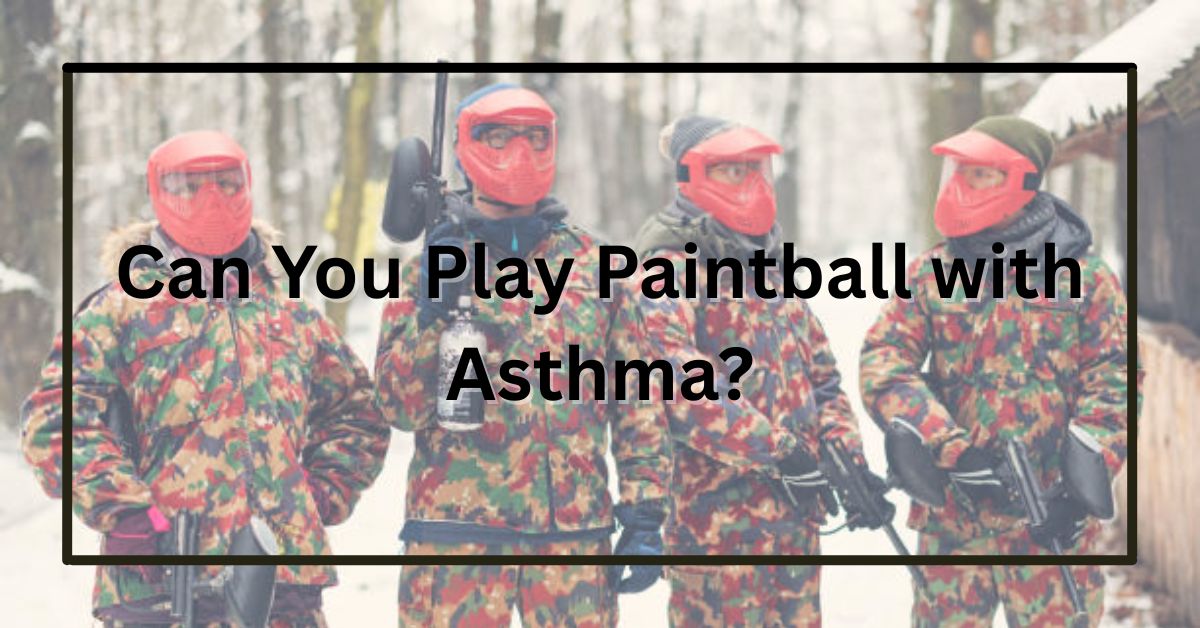Paintball is an adrenaline-packed sport that combines strategy, teamwork, and fast-paced action. But if you have asthma, you might be wondering: Can I play paintball safely without triggering an asthma attack? The short answer is—yes, many people with asthma can play paintball, but there are important precautions to take.
What Is Asthma and How Can It Affect Physical Activity?
People who have asthma have swollen and narrowed pathways in their lungs, which makes it hard to breathe. Common triggers include:
- Cold air
- Allergens (like pollen or dust)
- Intense physical exertion
- Stress or excitement
- Smoke or strong odours
Since paintball is a high-intensity sport played outdoors, it can expose you to several of these triggers. However, that doesn’t mean you’re automatically ruled out. With proper management, many asthmatics live active lifestyles—including sports like running, soccer, and yes, even paintball.
Is Paintball Safe for People with Asthma?
Generally, yes—if your asthma is well-controlled. Paintball is physically demanding, involving running, crouching, quick movements, and exposure to outdoor conditions. That said, the sport isn’t inherently dangerous for people with asthma if you’re careful.
Here’s what determines your safety level:
- Severity of asthma (mild vs. severe)
- How well-controlled are your symptoms?
- Whether you follow a personal asthma action plan
- Weather and air conditions on the day of the game
Before playing, you should speak with your doctor if you frequently have wheezing, breathing difficulties or symptoms at night.
7 Tips for Playing Paintball Safely with Asthma
Here are some helpful hints to assist you in playing wisely and securely if you’re excited to play a game with your friends:
1. Talk to Your Doctor First
Talk briefly with your healthcare provider before you pick up your paintball gun. Inform them about the activities and request guidance specifically for your asthma.
Before engaging in physical exercise, they could suggest a preventive inhaler or modify your prescription.
2. Use Your Inhaler Before the Game
Many people with asthma use a bronchodilator (like albuterol) 15–30 minutes before exercise. This helps open your airways and prevent exercise-induced asthma attacks. Always follow your doctor’s instructions.
3. Warm Up Slowly
Jumping straight into intense physical activity is a common trigger. To get your body and lungs ready for the action, spend a few minutes stretching, taking a short walk, or jogging.
4. Stay Hydrated
The symptoms of asthma may worsen if you are dehydrated. Before, during, and after your game, stay hydrated.
Keep away from caffeine and sugary drinks, which can occasionally raise your heart rate and mimic asthma symptoms.
5. Be Aware of Weather Conditions
Cold air or high pollen counts can trigger asthma attacks. Check the weather and air quality forecast before heading to the field. If it’s too cold or allergens are high, it may be best to skip the game or wear a face covering.
6. Take Breaks Often
Don’t push yourself too hard. Take breaks between matches to catch your breath, cool down, and drink water. Listen to your body—if you start wheezing or feeling tight in your chest, stop immediately.
7. Keep Your Inhaler Handy
Carry your rescue inhaler in a pocket, pouch, or with a friend on the sidelines. Make sure it’s easily accessible in case of an emergency. Tell someone in your group that you have asthma so they can assist if needed.
What If You Have a Mild Asthma Attack During the Game?
First of all, don’t panic. Mild asthma attacks can be managed if caught early. Here’s what to do:
- Stop playing right away and find a place that is peaceful, private, or shaded.
- Take a puff or two from your rescue inhaler every 30 to 60 seconds, or as much as six puffs if necessary.
- Remain composed, sit up straight, and take deep breaths.
- Seek medical care if symptoms don’t improve within 10–15 minutes.
Never ignore your symptoms or “try to push through it.” Paintball can wait—your health can’t.
Real Experiences: Asthmatics Who Play Paintball
Many players with asthma share that they enjoy paintball regularly by taking simple precautions. Some say the key is knowing their limits, avoiding playing in extremely cold weather, and always carrying their inhaler.
Paintball forums often have entire threads where people with asthma share tips and personal stories—and the consensus is clear: paintball is doable with asthma if you manage your condition well.
Conclusion
Can someone with asthma play paintball?
Absolutely yes, if you do it wisely. Like everyone else, you can experience the full pleasure of paintball if you prepare properly, pay attention to your body, and get advice from your doctor.
Never forget that safety comes first, but don’t let asthma prevent you from enjoying life, creating memories, and living it to the fullest.

